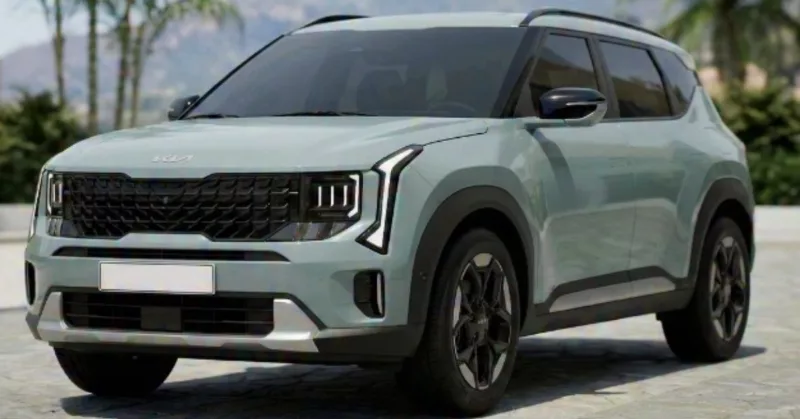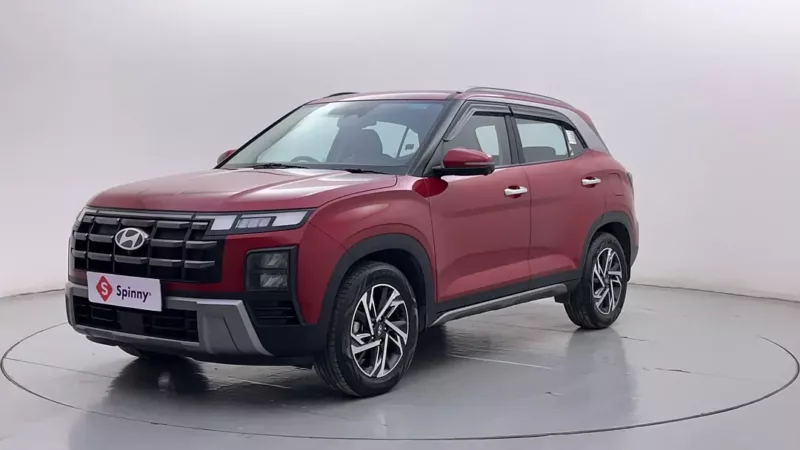Ever noticed how not all number plates on Indian roads look the same? Some are white, some yellow, others green, and then there are those that carry a government emblem or a bold arrow pointing upward. These reflect the vehicle’s intended use, ownership, and even environmental impact, not only colour choices or design eccentricities.
Number plates in a nation like India, where over 30 crore vehicles are registered and counting, are more than simply identification; they also help to keep our road system orderly, controlled, and safe. Whether it’s a commercial truck, a personally owned car, an electric scooter, or a defence vehicle, each plate colour has a particular connotation that the typical road user hardly pauses to consider.
From the basic white and yellow ones to the less-known red plates with the national flag, and even the new-age HSRP (High Security Registration Plates), we will break down every main kind of number plate used in India in this blog. If you’ve ever been curious about what they all signify, you’re in the right place.
Also Read – Fancy Number Plates
Why is a number plate important?
According to the Motor Vehicles Act of 1988, a number plate has to be fixed to the front and rear of your vehicle. It displays the registration number of the vehicle, as issued by a particular Regional Transport Office (RTO). Number plates indicate that a vehicle is legally registered and owned while aiding law enforcement in tracking it down during traffic violations, road accidents, etc. They also help authorities identify vehicles that have been stolen or abandoned.
Rules to remember about number plates in India
A visible, prominent number plate is necessary for the quick and easy identification of vehicles. Here are a few rules to remember:
- It is compulsory for the number plate to be visible at the front and rear of the vehicle.
- Number plates have to be illuminated to enhance visibility in low-light conditions, so motorists and pedestrians can see the vehicle approaching.
- If the plate is lost or damaged, you have to get it replaced by the concerned RTO.
- There are certain dimensions of the numbers and letters on the plate which must be followed.
- Customisation of number plates by changing their design or colour, incorporating pictures, or modifying fonts, is strictly prohibited.
- HSRP number plates are required for all new vehicles sold from 2019, along with old vehicles.
Types of number plates in India
White Number Plate
This is the most common type you’ll see on Indian roads and for good reason. A white number plate with black lettering is assigned to private, non-commercial vehicles. These are vehicles owned by individuals or private organisations and are not used for hire or commercial gain. From your personal hatchback to a luxury sedan, if it’s not used to earn money, it’ll wear a white plate. Only a person holding a valid non-transport licence is allowed to drive a vehicle with a white number plate.
Yellow Number Plate
This one’s hard to miss as it is often seen on taxis, autorickshaws, and transport vans. A yellow number plate with black text indicates a commercial vehicle, used to ferry passengers or transport goods. These vehicles operate under transport permits and are subject to different tax structures, insurance requirements, and regulations compared to private cars. These vehicles must be driven by someone with a commercial driving licence.
Black Number Plate
You’ll often spot this on self-drive rental cars and premium transport services. A black number plate with yellow lettering is used on commercial vehicles that can be privately operated, like rental companies or luxury hotel shuttles. These vehicles are legally allowed to be driven by non-commercial licence holders, unlike regular yellow plate vehicles. So, while the vehicle is technically commercial, the rules around who can drive it are a bit more relaxed. Black plates offer businesses flexibility, especially in the hospitality and travel sectors, where customers or guests often drive the vehicle themselves.
Green Number Plate
A green number plate, featuring a green background with white letters and number, is exclusively meant for electric vehicles. However, commercial vehicles sport a green number plate with yellow lettering, while white lettering is meant for private vehicles only.
This is the newest colour on Indian roads, and it’s all about sustainability. A green number plate is exclusively reserved for electric vehicles (EVs). The format changes depending on the use:
- Private EVs: Green background with white letters.
- Commercial EVs: Green background with yellow letters.
This plate signals that the vehicle is part of India’s push toward cleaner mobility, and often comes with perks like exemptions on road tax or toll charges, depending on the state. Green plates help authorities and infrastructure providers (like parking lots and toll booths) identify EVs for special treatment or incentives.
Red Number Plate
This one’s less common on the road and for good reason. A red number plate with white letters is a temporary registration assigned to brand-new vehicles. It’s issued by the dealership and is valid for a limited period which is typically up to 30 days, during which the vehicle must be permanently registered with the local RTO. You’ll often see this plate on cars being driven straight out of the showroom, still waiting for their permanent registration number. Note that driving with a red plate beyond its validity period is illegal and can invite penalties.
Blue Number Plate
This one carries a bit of status and authority. A blue number plate with white text is reserved for vehicles belonging to foreign diplomats. You’ll usually find these on embassy or consular vehicles. The code on the plate indicates the country of the diplomat, followed by their rank and serial number. They have alphabets like CC denoting Consular Corps, UN indicating United Nations, DC for Diplomat Corps, etc. Instead of a state code, they display the country code of the embassy. These vehicles are granted immunity from local laws under international diplomatic treaties, so yes, they’re treated differently on Indian roads.
Upward-Pointing Arrow Number Plate
An upward-pointing arrow on a number plate means it is a military vehicle. Referred to as Broad Arrow, the upward arrow is placed at the beginning or after the second character. The two digits following the upward arrow denote the year of the vehicle purchase, while the alphabet next to those represents the base code, and the numbers after the base code are the serial number. The last alphabet is the class of the vehicle. The plate features black letters and numbers on a yellow background. The arrow, also known as the “Broad Arrow”, is a long-standing symbol used to mark military property in India and many other Commonwealth countries.
Number Plate with India’s Emblem
This one’s a symbol of power and government authority. Vehicles for the President of India, Vice President of India, Governors of States, and other high-ranking government officials come with a red background and white numbers and letters, featuring India’s emblem in the centre. These plates usually don’t carry a registration number in the traditional sense, since the emblem itself signifies the vehicle’s status. These are non-commercial, protocol-specific plates, and are not available to the general public under any circumstances.
BH Number Plate
Introduced in 2021, the BH (Bharat Series) number plate was a game-changer for India’s mobile working class. This plate is meant for defence personnel, central government employees, and private sector employees with pan-India jobs. The format reads something like: 25 BH 1234 XX, where “25” is the year, “BH” denotes Bharat Series, and the alphanumerics follow a randomised format. BH plates also come with slab-based road tax calculated for just two years at a time. Getting a BH number plate streamlines the entire documentation process, while ensuring national validity throughout the country.
High-Security Registration Plate (HSRP)
This is not a colour-coded type, but rather a security upgrade to all standard number plates in India. A High Security Registration Plate or HSRP is crafted with aluminium and embedded with tamper-proof features. It is tough to remove an HSRP number plate or use it for counterfeiting purposes. It has a unique laser-etched code, a hologram hot-stamped with chromium, a retro-reflective coating to improve visibility at night, and a non-removable snap lock. An HSRP number plate improves road safety while implementing a standardised system of vehicle identification throughout the country. It is useful for tracking down the vehicle in case of theft and fraud. It’s now mandatory for all new vehicles sold in India, and older vehicles are gradually being brought into compliance.
Components of a number plate in India
Every Indian number plate follows a well-defined format, and each part has a purpose. Here’s how it breaks down:
1. State Code
The plate begins with two capital letters denoting the state or union territory where the vehicle is registered.
For example:
- DL for Delhi
- MH for Maharashtra
- KA for Karnataka
2. RTO Code
Next come two digits that identify the specific RTO (Regional Transport Office) within the state.
Example: DL 01 refers to RTO Delhi (North).
3. Unique Identification Number
Following the RTO code is a four-digit number that uniquely identifies the vehicle. This number can range from 0001 to 9999.
4. Series Code (if applicable)
Once the four-digit combinations are exhausted, an alphabetical series (like AB, CD, etc.) is added in front of the unique number.
5. Special Emblems or Logos
Modern plates (especially HSRPs) come with:
- Ashoka Chakra hologram
- Laser-etched unique ID number
- IND lettering (for India)
These help verify authenticity and prevent cloning.
How to get a number plate in India?
Getting a number plate in India is a straightforward process:
- Submit all necessary documents such as address proof, age proof, evidence of ownership, category for which vehicle you are applying, etc., at the RTO or online via the Parivahan Portal.
- The RTO validates the paperwork and issues the registration number.
- Once the process is complete, the RTO provides the number plate.
If you buy the vehicle from a dealership, the dealer might assist you with the registration process.
Summary:
Indian number plates have actual meaning, power, and identity rather than only a sequence of digits. From the white plates on ordinary vehicles to the yellow ones on commercial vehicles, and from military-grade arrow plates to the high-security HSRPs and BH series, every type has a specific use and follows strict rules.
Whether you’re buying a car, driving across states, or just interested in that green plate whizzing by you, knowing these plates is not only helpful for vehicle owners but also vital for everyone navigating Indian roads. Number plate rules in India are changing quickly as new forms like the Bharat Series and the expanding reach of electric cars take hold. Staying informed helps you stay compliant and confident.
Are there any separate rules for BS-VI vehicles?
This category of four-wheelers needs to have a 1 cm green-coloured layer on the number plate. Apart from that, diesel vehicles require an orange sticker, while petrol and CNG vehicles need to get a blue sticker. These stickers are attached to the green layer.
What if you violate the number plate rules?
Driving without proper registration, customising the number plate with fancy lettering or pictures, etc., can result in penalties. Driving without a valid number plate could mean fines up to Rs. 5,000 and/or imprisonment for up to 3 months, while defective or fancy ones mean you might have to pay up to Rs. 10,000. If the registration number is wrong or has been tampered with, you could face a fine of up to Rs. 10,000, along with jail time. Cars without an HSRP number will also attract fines and legal consequences. If you are a repeat offender, your license could be suspended or revoked.
What changes have been introduced in the number plate rules from October 2020?
As per the updated rules, temporary number plates with red lettering and yellow background are allowed, while there is a ban on characters in regional languages. Adhering to specific size, thickness, and spacing requirements for the characters is a must.
What are fancy number plates?
Number plates that contain digit combinations like 0001, 0002, etc. are designated as fancy numbers. These are costly to obtain and usually in high demand, with only a few allocated for every RTO in a state.
Do VIP number plates have different colours?
VIP number plates in India have special numbers, but they have to follow the standardised colour coding system based on the vehicle type. Private VIP cars will have white plates with black text, while commercial VIP vehicles use yellow plates with black text.




